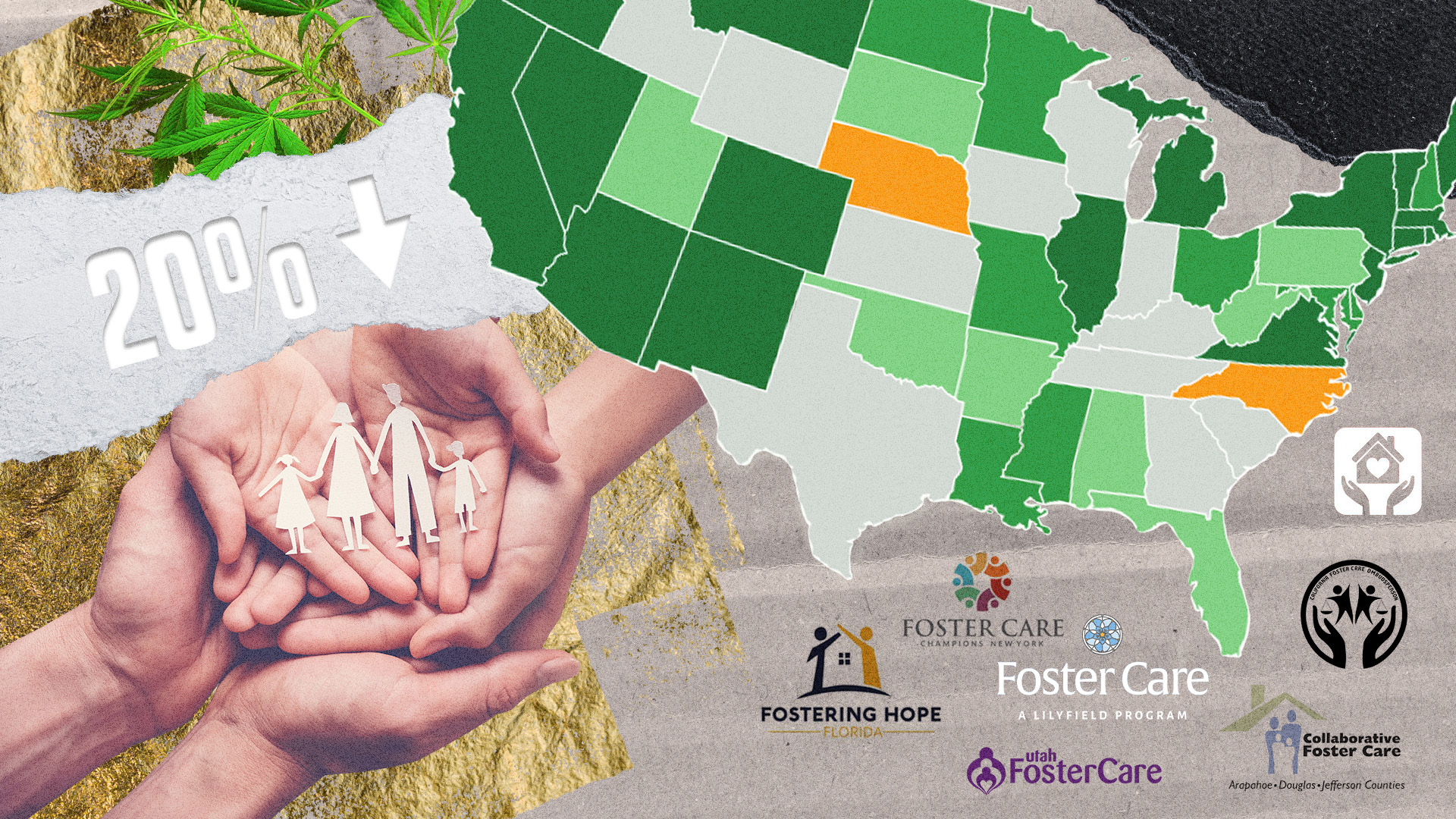In recent years, there has been a heated debate over nationwide marijuana legalization. Supporters highlight its potential medicinal benefits, while critics raise concerns about possible societal consequences and drug misuse. However, a new 2023 study conducted by Georgia College and State University researchers has shed new light on this issue in an unexpected way.
The study reveals a surprising link between the legalization of medical marijuana and a decline in foster care entries. Remarkably, states that have implemented this reform have seen a significant reduction of nearly 20% in cases of parental drug misuse within just three years of the reform.
Considering family dynamics and child welfare, this finding offers a fresh perspective on medical cannabis policies. Let’s examine how the researchers arrived at this conclusion.
Study: Medical Cannabis Legalization Linked to 20% Drop in Foster Care Cases for Drug Misuse
The study aimed to understand how marijuana legalization affects foster care admissions. To conduct a thorough analysis, scientists examined records of 3.4 million foster care cases collected from 2007 to 2019, a period of 12 years. By using this extensive dataset, researchers could better understand trends both before and after legalization in different states.
The team used a difference-in-differences (DiD) analytical approach in comparing states that legalized cannabis with those that didn’t. Simply put, a DiD analytical approach is a statistical technique used to estimate causal effects. It compares the changes in outcomes over time between a group exposed to an intervention and a control group that remains unexposed.
This approach offered some insight into the possible consequences of these legislative decisions. For accurate results showing the impact of legalizing cannabis, this study was meticulously designed. It considered factors like state unemployment rates and per capita income. This ensured that the observed correlations truly reflected the effect of legalizing marijuana.
The study’s findings reveal an interesting observation: Cannabis legalization is directly linked to a significant decrease in foster care cases associated with drug misuse. As the research progressed, a consistent trend emerged. While there was a gradual decline in the first few years after legalization, a noticeable reduction became evident by the end of the third year.
This impact is best understood when considering the numbers: around 700 fewer children were placed into foster care due to parental drug abuse after medical cannabis was legalized. These findings provide insight on the social implications of drug policy reforms and highlight the benefits ending cannabis prohibition has on vulnerable families.
Drug Misuse in Foster Care: Impact & Medical Cannabis Policies
The misuse of drugs is not just a minor concern regarding the reasons for placing children in foster care. Actually, drug misuse stands as the second leading cause for children being taken from homes, accounting for 40% of cases. This cause follows abuse and neglect, which remains the primary reason. Statistics reveal that over 60% of children are removed from their homes due to neglect. In other words, drug policies have a strong impact on family dynamics and safety.
Why You Should Get Your Medical Marijuana Card
Veriheal has satisfied millions of patients nationwide by giving them access to these benefits
- Larger purchase limits
- Peace of mind
- Enhanced legal protection
- Access to higher potency strains
- Save up to 25% on cannabis purchases
- Skip the line at the dispensary
The study also compared different states with medical cannabis programs, looking at those with strict guidelines versus those with less restrictive laws. Interestingly, the results varied: some states saw a significant decrease in foster care placements due to drug misuse, while others saw minimal changes.
However, this analysis was made more difficult by the fact that two different analytical models were used. This undoubtedly led to conflicting interpretations.
The True Impact of Recreational vs. Medical Cannabis
The impact of medical cannabis on foster care dynamics is evident, but the situation differs when it comes to recreational cannabis. Interestingly, the study suggests that legalizing cannabis for adult use doesn’t directly link to an increase in foster care cases.
This raises thought-provoking questions:
Does the decrease in foster care cases result from a cultural shift where cannabis legalization has changed societal perceptions and reduced stigmas? Or is it due to medicinal effects, where legal consumption reduces the likelihood of misuse?
Interestingly, another study published in 2022 by the University of Mississippi further supports the results of this new study, particularly on recreational cannabis use. Researchers found that its legalization is associated with a 10% decrease in foster care admissions.
This reduction encompasses various categories, including parental drug misuse and instances of neglect and abuse. These findings showcase the wide-ranging impact of broader cannabis policies.
Putting It All Together
As different states in the country continue to navigate the complex issue of cannabis legalization, this study brings forth an important aspect to consider. The potential benefits for society, particularly in terms of the well-being of children, should not be disregarded. Although further research is needed to fully comprehend the complexities involved, lawmakers should consider these findings when developing future cannabis laws.
Note: The content on this page is for informational purposes only and is not intended to be professional medical advice. Do not attempt to self-diagnose or prescribe treatment based on the information provided. Always consult a physician before making any decision on the treatment of a medical condition.
Author, Share & Comments








